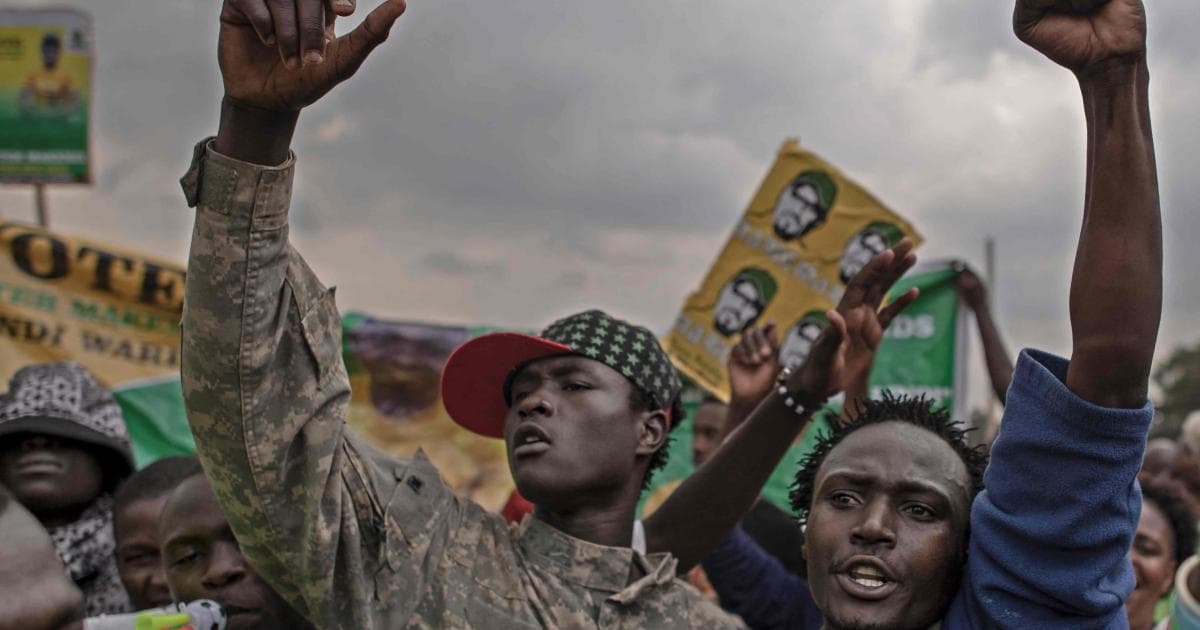We're loading the full news article for you. This includes the article content, images, author information, and related articles.
As post-election chaos grips Tanzania, resulting in hundreds of alleged deaths and regional instability, Kenyan analysts and rights groups warn of critical lessons for Nairobi on electoral integrity, judicial independence, and the risk of democratic backsliding.

NAIROBI – Tanzania is grappling with a severe political crisis following the general election held on Wednesday, 29 October 2025, which has been marred by widespread violence, allegations of mass killings, and a near-total internet shutdown. On Friday, 31 October 2025, Tanzania's leading opposition party, Chama cha Demokrasia na Maendeleo (CHADEMA), claimed that approximately 700 people have been killed in clashes with security forces since the vote. While these figures remain unverified, the United Nations has acknowledged receiving credible reports of at least 10 fatalities and has called for an impartial investigation into the excessive use of force. The unrest was triggered by an election that saw incumbent President Samia Suluhu Hassan of the ruling Chama Cha Mapinduzi (CCM) party win a landslide victory after her main challengers were disqualified or imprisoned.
Tanzania's National Electoral Commission (NEC) declared President Hassan the winner with a commanding share of the vote, a result the opposition has rejected as fraudulent. The election process was heavily criticized by rights groups even before polling day, citing a pattern of arbitrary arrests, enforced disappearances, and a crackdown on dissent. Key opposition figures, including CHADEMA's leader Tundu Lissu, were arrested months prior to the election, with Lissu facing treason charges. His party, along with the Alliance for Change and Transparency (ACT-Wazalendo), was ultimately barred from participating, effectively removing any significant challenge to the CCM's decades-long hold on power. In response to the results, violent protests erupted in major cities like Dar es Salaam and Mwanza, with demonstrators setting buildings ablaze and clashing with security forces who deployed tear gas and live ammunition. The government imposed a nationwide curfew and the military was deployed to enforce order.
The turmoil has had immediate cross-border consequences, particularly at the Namanga One-Stop Border Post. Protesters fleeing crackdowns in Tanzania crossed into Kenya, prompting Tanzanian police to fire tear gas canisters across the border, disrupting business and daily life on the Kenyan side. The internet blackout imposed by Tanzanian authorities has also affected Kenyan businesses and communication in the border town. In response, Kenya's Interior Principal Secretary, Raymond Omollo, announced on Thursday, 30 October 2025, that security has been heightened along all border points, including Namanga, Taveta, Isebania, and Lunga Lunga, to prevent a spillover of violence. Omollo urged traders and residents to cooperate with security agencies while emphasizing that the political situation in Tanzania is an internal matter.
The crisis in Tanzania presents a series of critical lessons for Kenya, particularly concerning the institutions that safeguard democracy.
The East African Community (EAC) deployed a 67-member Election Observation Mission, led by former Ugandan Vice President Dr. Speciosa Kazibwe, on 24 October 2025, stating its commitment to credible elections as a cornerstone of regional integration. The African Union also sent a 72-person mission. However, with no credible international observers allowed and some Western nations withdrawing participation, the legitimacy of the vote was questioned internationally before it began. The fallout threatens to impact regional trade and cooperation, with Kenyan businesses operating in Tanzania adopting a cautious wait-and-see approach amid the instability. The crisis serves as a sobering test for the EAC's principles of good governance and democracy, as enshrined in its treaty, and a powerful cautionary tale for Kenya as it navigates its own complex political landscape.
Keep the conversation in one place—threads here stay linked to the story and in the forums.
Sign in to start a discussion
Start a conversation about this story and keep it linked here.
Other hot threads
E-sports and Gaming Community in Kenya
Active 9 months ago
The Role of Technology in Modern Agriculture (AgriTech)
Active 9 months ago
Popular Recreational Activities Across Counties
Active 9 months ago
Investing in Youth Sports Development Programs
Active 9 months ago
Key figures and persons of interest featured in this article